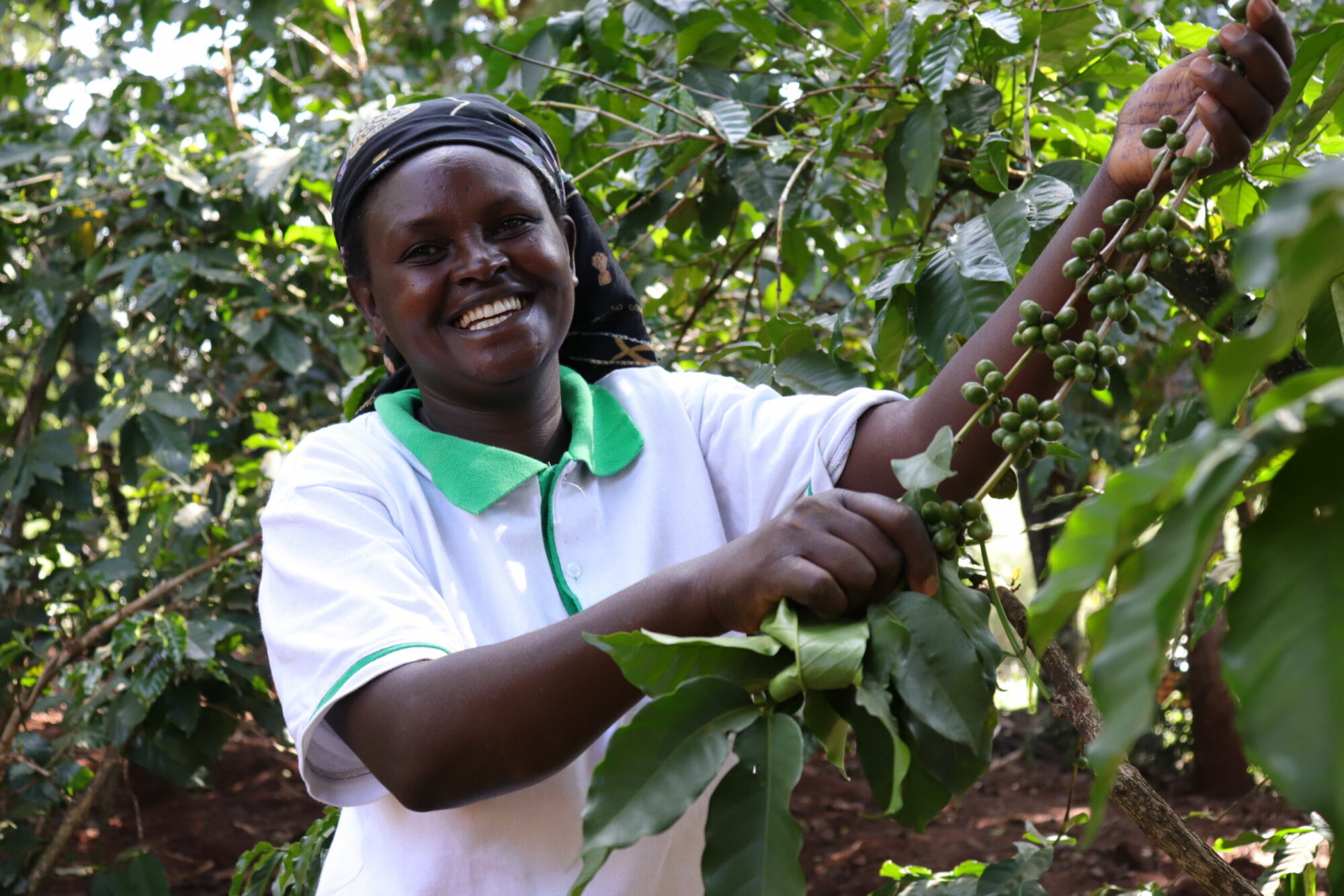Mary Mwikali Musau is a 46-year-old farmer from Unyuani Zone, Kangundo sub-county, Kenya. She is married, a mother of one daughter and grandmother to one.
She is a coffee farmer and an active member of Kilalani Women in Coffee under the Machakos Cooperative Union (MCU). She has been farming coffee since 2005 on her quarter-acre farm. The farm currently has 81 bushes of coffee given to her by her husband. This is a rare occurrence since coffee farming is a male-dominated activity.
It is through coffee farming that she managed to join Kilalani Women in Coffee. The group of like-minded women was established to empower women, coffee farmers, economically and build their farming and crop diversification capacity.
Over the years, coffee farming in Kenya has been primarily a male-dominated activity. Despite women being the backbone of agricultural production-making up almost half of the country’s agrarian workforce-, they continue to earn little or no income.
Sometimes they also lack representation in leadership roles to access and control land. With this background, Kilalani Women in Coffee has the mandate to ensure women’s representation in the Cooperative Union.
Farmers like Mary have been trained on; Village and Savings Loans Association (VSLA), Water harvesting, Dairy keeping, Coffee farming, poultry keeping, beekeeping, and intercropping.
It is through the Village and Savings Loans Association (VSLA) that she has benefitted greatly. The unifying factor for the farmers in the group is coffee.
Through the VSLA, they can save and borrow money. Mary explains that “I can borrow money from the VSLA to buy farm inputs such as fertilizer, pesticides, animal feeds and for my home subsistence. This has greatly improved the quality of my crops”.
She is practising crop diversification, farming other crops such as maize, beans, pigeon peas, macadamia, cowpeas, pumpkin, cassava, sweet potatoes, and vegetables such as spinach and kales. As an alternative to farming, she is also involved in livestock farming, rearing two dairy cows, two bulls, a herd of rabbits, sheep, goat, and a brood of 28 chickens. She sells 5 litres of milk daily to Munyua Dairy in Kangundo to supplement her income.
However, COVID-19 has affected her access to markets due to government-imposed lockdowns and curfews. In return, this has affected her savings and loan profile in the VSLA.
She is however optimistic for the future. Mary is a vanguard for positive change in the region. “I desire to start roasting and selling our own coffee”, she says.
